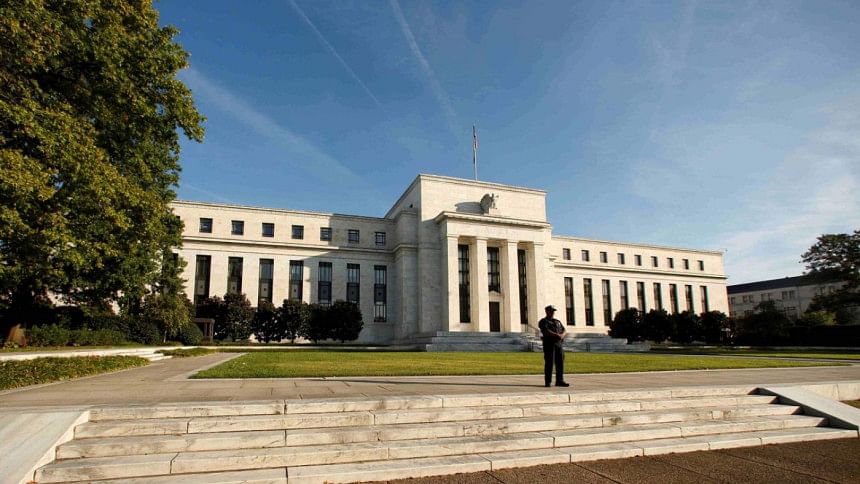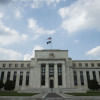US Fed to debate rate cut in shadow of presidential election

The US Federal Reserve is widely expected to cut interest rates again this week, while votes are being counted in one of the closest-fought presidential races in decades.
Opinion polls show Democratic Vice President Kamala Harris and Republican former president Donald Trump in a dead heat ahead of Election Day on Tuesday.
The Fed's two-day rate meeting begins on Wednesday, and is expected to result in a quarter percentage-point rate cut the following day.
The United States has remained a bright spot in the global economy this year, with inflation falling toward the Fed's two percent target, while growth has remained robust and the labor market has remained surprisingly resilient despite recent signs of cooling.
Against this backdrop, futures traders are convinced that the US central bank will announce another rate cut, assigning a probability of more than around 99 percent on Friday that it will move by a quarter percentage-point, according to data from CME Group.
Many analysts agree with the market expectations of a 25 basis point cut, which would lower the Fed's key lending rate to a target range of between 4.50 and 4.75 percent -- three quarters of a percentage-point below its level in early September.
"I think the Fed is probably going to cut interest rates by 25 basis points," Jill Cetina, an executive professor of finance at Texas A&M University and a former vice president of supervision at the Dallas Fed, told AFP.
"We continue to expect the FOMC to lower the fed funds rate by 25bp at its November and December meetings," economists at Goldman Sachs wrote in a note to clients published Friday, referring to the rate-setting Federal Open Market Committee (FOMC).
The US central bank has a dual mandate from Congress to act independently to keep inflation at two percent in the long term, and to hold the unemployment rate at the lowest sustainable level.
Under this division of labor, the Fed tackles monetary policy -- primarily by raising and lowering its benchmark interest rate to boost or cut demand in the economy -- while Congress and the White House tackle fiscal matters by adjusting tax-and-spend policies.
On the campaign trail, Trump has repeated his past criticism of Fed Chair Jerome Powell -- whom he first appointed to run the US central bank -- and indicated he would like to have "at least" a say over interest rates.
By contrast, Harris has said she "would never interfere" with the Fed's decisions.
However, given that any changes to the Fed's independence require Congressional approval, it is unlikely that a Trump victory would lead to a significant change to the way the US central bank currently operates.
US government borrowing exploded during the Covid-19 pandemic, and the deficit has remained elevated throughout Joe Biden's four years in office, hitting its third-highest level on record in the 2024 fiscal year, according to Treasury Department figures.
Both Harris and Trump are running on policies that independent analysts expect to push up the deficit, which could force the Fed to keep rates higher than they otherwise would over the longer term to compensate for higher borrowing.
Since the Fed's September decision to cut rates by 50 basis points, there has been a sharp rise in the yield on popular two- and 10-year US Treasury notes, which are heavily affected by interest rate expectations.
That recent rise has pushed up borrowing costs for consumers and businesses, with the average rate on the popular 30-year fixed mortgage inching closer to seven percent in recent weeks, according to data from Freddie Mac.

 For all latest news, follow The Daily Star's Google News channel.
For all latest news, follow The Daily Star's Google News channel. 






Comments